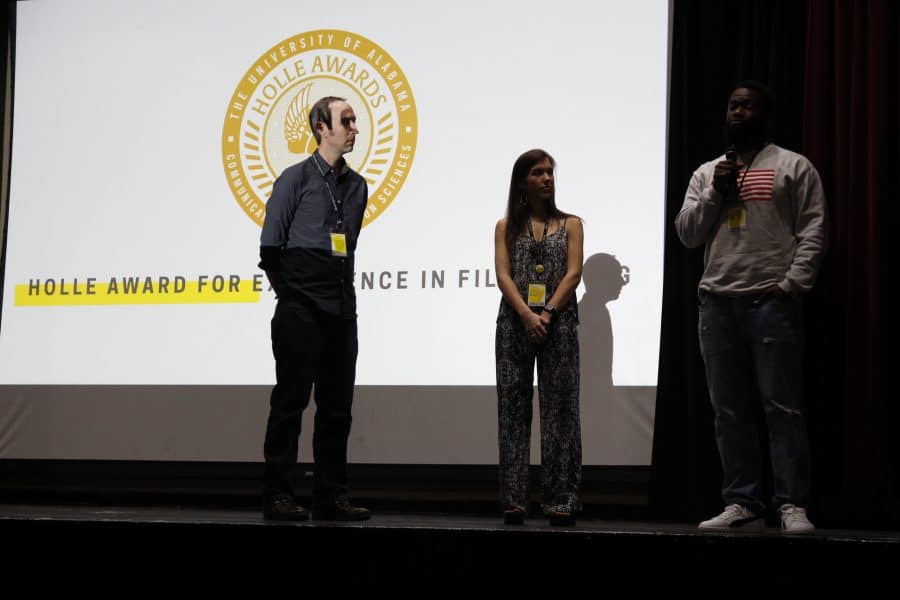The University of Alabama transformed into a hub of all things film over the weekend. Students, UA alumni and industry professionals joined together at the sixth annual Black Warrior Film Festival on Friday, March 2 and Saturday, March 3 to celebrate the art of filmmaking.
This year’s Black Warrior Film Festival focused on the future of film and the creative collaborations that are changing the industry. Representation is the future of film, and this meant highlighting women and other minorities in film, said Wade Scanlan, co-executive director of the Black Warrior Film Festival.
“We’re reaching out beyond JCM students this year and we’re really getting the community of C&IS and the University of Alabama as a whole very engaged this year,” Scanlan said. “We’ve had a very good turnout and people seem engaged in what we’re having to offer to them.”
One notable guest, Danny Ryan, hosted panels on Friday to start off the Festival with an inside look at the new world of virtual reality. Brandon Easton hosted a panel on television writing.
Ryan has a special connection to the Black Warrior Film Festival as a co-founder of the event back in 2013. He has now become a writer and director based in New York City. He also started his own film and VR production company, Bluehaus Productions, in 2017.
“I got into VR because it’s so wide open and not really figured out yet,” said Ryan. “I’ve only been in VR for a year and there are these old-school vets who have been doing it for three to four years, but we are literally making the rules with it.”
Ryan hosted a panel, “Virtual Reality Filmmaking,” to show students a different way of storytelling with VR and tips on how to use some of the equipment. For students interested in getting into the VR industry, Ryan suggested trying it out and using the process of trial and error.
“It’s a unique way to tell stories and we have to start thinking in a different scope and a different medium of storytelling,” said Ryan. “I think technology gets better because we give it a reason to, and if we create stories that are going to engage people and bring people back to the experience, then it’s going to move this forward and expand it.”
The Festival continued on Saturday with three panels on the importance of film festivals, women in film and industry creatives. An industry creatives panelist, Stephen Thomason, has worked in art departments on shows like “Crazy Ex Girlfriend” and “It’s Always Sunny in Philadelphia” and currently works on “The OA.”
Thomason discussed his vision of the future of film by praising older sci-fi movies and basing the future of design on the old way of doing things.
“They used to make miniatures instead of giant CGI spaceships, so the question is how can we take the old-school alien miniatures and enhance it with the technology of today?” Thomason said. “I mean when you watch early 2000s CGI films, it doesn’t really hold up, but if you watch “Aliens,” you’re like “Woah, they’re in space, they’re legitimately in space” and I think it’s very important to think about what people really like and what can be enhanced by what’s available today.”
The future of film and design is still to be decided, but the Black Warrior Film Festival has given UA students an idea of how to create that future for themselves.
The Black Warrior Film Festival was sponsored by The University of Alabama, the College of Communication and Information Sciences, the Department of Journalism and Creative Media, New College, the Source and University Programs.









